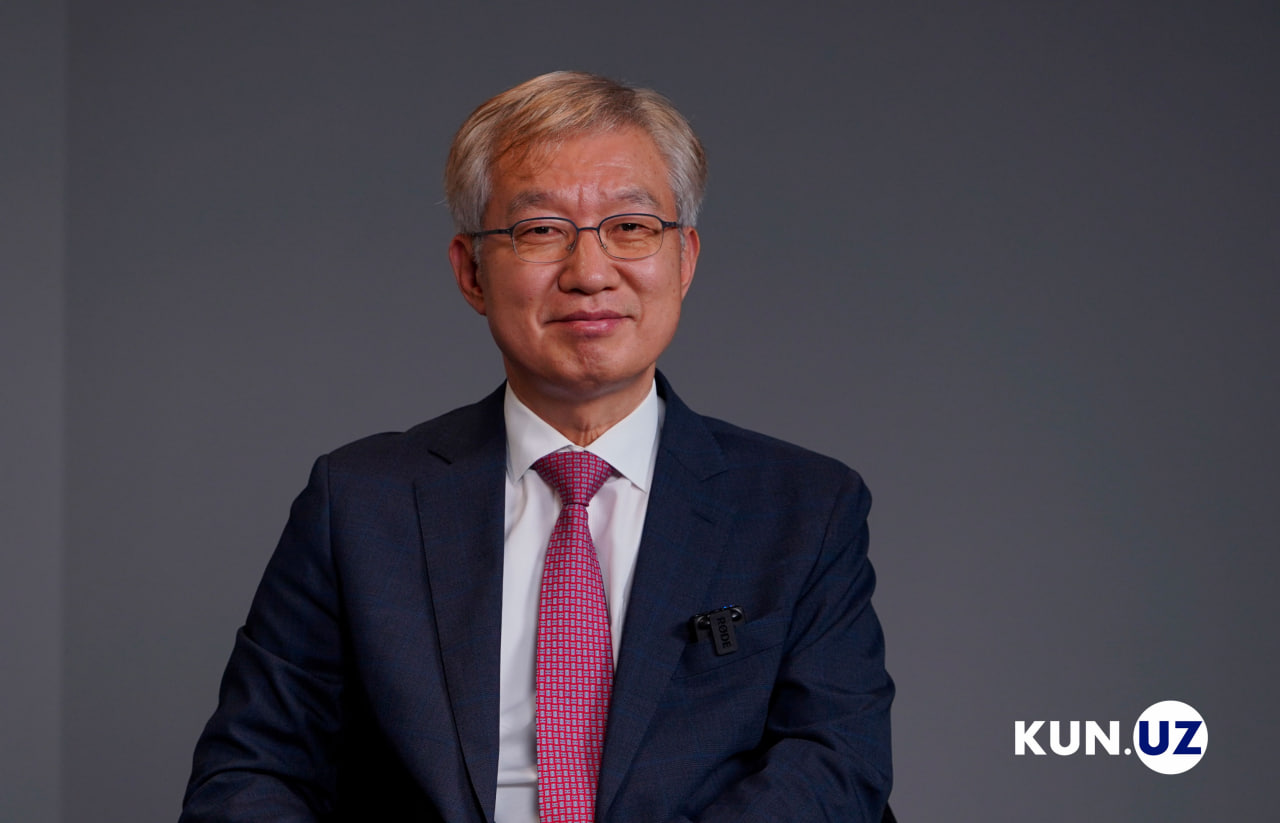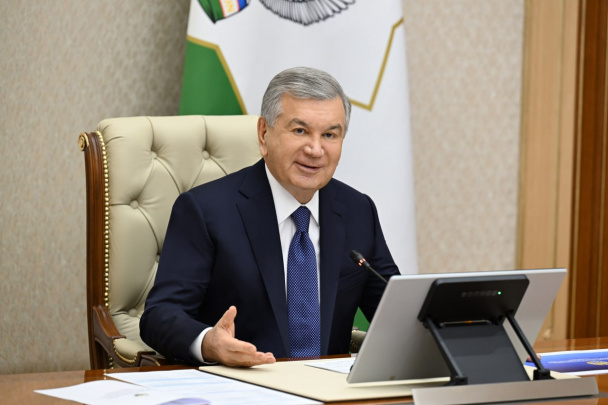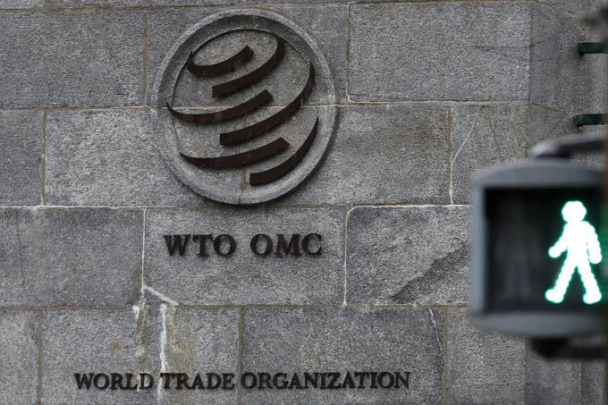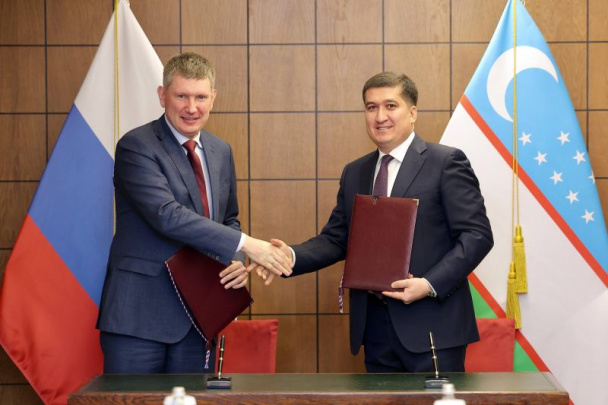“WTO accession definitely helps Uzbekistan’s economic reforms” – exclusive interview with Lee Taeho
Kun.uz had an exclusive interview with Lee Taeho, former chairman of the Working Group for Uzbekistan’s accession to the World Trade Organization and the former Ambassador of the Republic of Korea to the United Nations Office and other international organizations in Geneva, Switzerland.
During the interview, Lee Taeho spoke about the requirements for joining the WTO, the current state of negotiations on Uzbekistan’s accession to the organization, relations between Uzbekistan and the Republic of Korea, and many other issues.
Mr. Ambassador, thank you very much for your consent to the interview. We know you have a rich background on WTO issues as you headed your country’s diplomatic mission to the organization for two years and held high-ranking positions in the system of foreign ministry.
Besides, you were previously the chairman of the Working Group for Uzbekistan’s accession to the World Trade Organization. So, you are well aware of where Uzbekistan’s accession is and where it’s going.
Based on that my first question is about the importance of joining the WTO. In the context of Uzbekistan’s active and large-scale reforms, won’t the WTO accession put us in its framework?
I should note that Uzbekistan applied for WTO membership in 1994. It was actually one year before the organization was officially launched. Then, after several years of inactivity, your government activated the process of accession again, which is a very welcome movement.
As you know, in today’s globalized world, all countries are interconnected with each other in terms of trade and investment. Uzbekistan is also one of these countries but without the framework of the WTO. When the WTO was launched, around 76 countries were its members but now this number has reached 164. This rapid increase in the number of member states demonstrates the importance all the countries attach to the WTO membership. Uzbekistan is not yet a member but is trying to join the organization.

As I said earlier, all the countries are connected with each other, and in order to manage their trade relations smoothly, they need a certain set of rules, and these rules are governed by the WTO. The rules-based international trading system is very important and the WTO is at the center of this system. That’s why Uzbekistan should join the organization as early as possible.
You also asked about its effect on the reforms being carried out in your country. Of course, when you join the WTO, you will have enhanced market access as you will be trading with 164 countries on a non-discriminatory basis. This is a huge gain for Uzbekistan. But in order to become a member of the WTO, you should align your economic system with international norms and standards.
Some people may worry about the restrictions the WTO could impose, but actually, the rules of the organization and international standards are a framework to which you need to orient yourself. So, it’s something you need to strive for, not see as a restriction. I think, joining the WTO will definitely help Uzbekistan in pursuing its economic reforms.
Usually in WTO accession, negotiations are constructed so as to open the member states access into the acceding country’s market only, yet the acceding country gets what is already offered among member states. Does it mean that the acceding country will have its imports increased? How does it eventually change the situation to give a boost to exports?
In fact, it’s true. When you start negotiations for accession, the initial market access offer from the acceding country is on the table. We sit down together and discuss how much market access you are going to provide to the 164 member states. You may think that it is a unilateral concession, but it is not. Because once you join the WTO, you will get access to the markets of 164 countries. So, the acceding country's initial market opening is in exchange for the access it gets to the markets of the member states. This is a win-win situation. You will have your gains and member countries will have theirs because Uzbekistan is a big market that is waiting in the queue to join.
Member states demand from acceding countries commitments beyond WTO binding rules, for example, the so-called “WTO Plus”. Do you think it’s fair for developed nations to demand such things from developing countries when they are joining the organization?
I think there is some misunderstanding on that issue. Yes, such a thing exists but only in certain cases and to a certain extent. For example, in the case of China. You know, China is a big country, its importance is formidable, and the dimension of its accession was huge. So, the member countries wanted to make sure that China would abide by the rules and would not threaten the regulations. Therefore, they demanded some “plus” elements. But normally, in the case of other countries, I haven’t seen anything in particular that could be called “WTO Plus”.
Turning to Uzbekistan’s case; Where the country is in terms of accession? What kind of opportunities do you see for the country by joining the World Trade Organization?
As I said earlier, Uzbekistan applied for membership in 1994 and for several long years there was no progress, no action. Only about five years ago, your government activated the process of joining the WTO. Since then, there have been three or four working group meetings and I chaired one of them. Now we are looking forward to having another round of talks. So, in that respect, I think the recent process of Uzbekistan’s accession to the WTO has been accelerated and this is very much welcome given the history of your accession process.
There are two processes: multilateral and bilateral. The latter focuses on market access issues, while the former concentrates on the rules area. Both of them are working very well.
Your government’s pursuit of WTO membership is made in the broader context of your economic reform effort to transform the existing economic structure into a competitive, market-oriented economy. So, the WTO accession process is an essential part of that broader ongoing reform program and for that matter, your delegation repeatedly made it clear that this process is irreversible, you cannot go back. The existing members of the WTO welcome that signal and recognize the seriousness your government attaches to this work.
When I came here, many people asked me “When are we going to finish this process?” Nobody knows but at this moment I can tell you that it depends on the determination of your government to pursue this issue, which, in turn, should be supported by your people. There should be a national consensus to back up this effort and without it, it is not sustainable.
Trade issues are very difficult to manage, but with a clear understanding of what WTO membership can bring to your country, you can achieve your goal. Your government is building that consensus step-by-step.
This morning’s conference was very useful for that matter because I saw the participation of not only your government officials but also representatives of your parliament, academia, and business people. This means that all stakeholders are taken on board and with that, your government will be able to push forward to join the WTO.
Uzbekistan is a double land-locked country, which is the biggest challenge for its foreign trade. How will accession help the republic overcome this problem?
I think it depends on how you see it. Being a land-locked or double-land-locked country can be seen as a disadvantage, that’s true. But you are located at the center of the historic trade route, you are positioned to become a transport and manufacturing hub for Central Asia. So, in order to use your full potential, you should be connected not only with your neighbors but also with EU countries, with the Middle East through trade and investment. That can be done when you join the WTO.
We should think positively about the future of Uzbekistan. You have a divine destiny for prosperity. I don’t think your location is completely a disadvantage, you can actually turn it into a comparative advantage for the prosperity of your country in the future.
Uzbekistan already has the CIS as its main trade partner. Can far-away countries replace the existing markets for Uzbekistan?
As I said earlier, you are strategically located; too strategically for your country to remain a regional economy. You should now focus on the global market and be connected with other countries such as Korea, Japan, and others. So, the WTO should come first, I think.
FTA? Yes, it is also an option but it cannot substitute the WTO. The policy option for your country to take is to go for the World Trade Organization first and then the FTA. This is the sequence you need to pursue.
You also held senior positions in the foreign ministry system of the Republic of Korea. Can you comment on the dynamic of relations between Uzbekistan and your country over the past six-seven years?
Our countries have very friendly relations and we support each other in the international arena. The level of our cooperation is, what we call, Special Strategic Partnership Relations and it is one of the highest forms of bilateral ties that Korea maintains with other countries. You are actually the center of Central Asia for Korea in terms of bilateral contacts and with regard to this WTO accession effort, our government supports you actively in your endeavors to join the organization. This is just one example. We also have an official Development Program, exchange projects supporting labor migration, and others.
As a former government official, I am very much satisfied with the level of importance the Korean government is attaching to the development of relations between our countries.
Mr. Ambassador, thank you very much for the interview. We hope to see the strengthening of relations between the WTO and Uzbekistan, as well as between our nations.
Thank you, it’s a great pleasure.
Related News

11:41 / 13.02.2026
Uzbekistan to dissolve UzTest and privatize certification services

21:09 / 11.02.2026
Uzbekistan’s public sector expenditures rise despite administrative reforms

14:12 / 05.01.2026
Government steps up legal reforms to finalize WTO accession

12:06 / 22.12.2025




